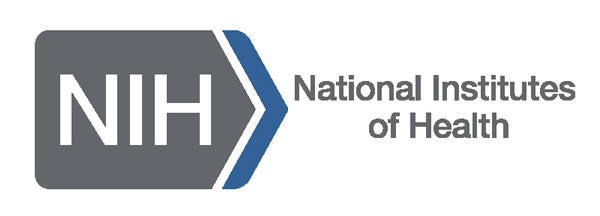NIH G-RISE Interdisciplinary Biomedical Science and Technology Program (I-BioSTeP)
The overall mission of this program is the establishment of a premier doctoral level graduate training program in the biomedical sciences at UC Merced to train diverse cohorts of students with the skills to identify and solve pressing biological problems using quantitative interdisciplinary approaches that prepare them for competitive careers in the biomedical field. We aim to accomplish our mission through achieving the following specific objectives which include
1. Increasing the diversity of our trainee cohorts
2. Ensuring retention and speeding up the time to degree
3. Producing graduates with a broad training in an interdisciplinary curriculum for biomedical sciences
4. Inculcating a sense of belonging and teamwork skills
5. Ensuring successful transition into the biomedical research workforce
Training Program Plan
The I-BioSTeP interdisciplinary graduate training program will include both course-based and hands-on modular training, team-based research, and real-world applications, aimed towards emphasizing competence, independence and versatility. The program also includes professional and career development, guided peer mentoring, business/entrepreneurship and meaningful outreach activities integrated throughout.
- Ethics and professionalism in research, which will include one-on-one mentoring along with updates of professional goals in the IDPs, and discussion of research design, implementation to ensure reproducibility, statistical analysis of data and error estimations.
- Basics in scientific writing, which will include both short workshops and longer write-in periods.
- Critical reading and literature review skills one of the areas where most graduate students have the hardest time when they start, and one for where there does not exist any easy tutorials. Training will be provided in how to learn by reading that allows quick recall of important facts, to annotate texts, do an effective literature search in their disciplinary areas, to critique and assess publications, and build a citation bank, including the use of such software as Mendeley to save references; and
- Teaching and mentoring, which will establish and prepare the students in best practices, both in research and the classrooms, and additionally including how to get the most out of their interactions with their advisors.
NIH Graduate Research Training Initiative for Student Enhancement (G-RISE)
The National Institutes of Health (NIH) recognizes the need to diversify the scientific workforce by enhancing the participation of individuals from groups identified as underrepresented in the biomedical, clinical, behavioral and social sciences (collectively termed "biomedical") research workforce. Research shows that diverse teams working together and capitalizing on innovative ideas and distinct perspectives outperform homogenous teams. Scientists and trainees from diverse backgrounds and life experiences bring different perspectives, creativity, and individual interests to address complex scientific problems. There are many benefits that flow from a diverse NIH-supported scientific workforce, including fostering scientific innovation, enhancing global competitiveness, contributing to robust learning environments, improving the quality of research, enhancing public trust, and increasing the likelihood that health disparities and the needs of underserved populations are addressed in biomedical research.
Program Objective
The Overarching Objective of this Graduate Research Training Initiative for Student Enhancement program is to develop a diverse pool of well-trained Ph.D. biomedical scientists, who have the following technical, operational, and professional skills:
-
A broad understanding across biomedical disciplines and the skills to independently acquire the knowledge needed to advance their chosen fields;
-
The ability to think critically and independently, and to identify important biomedical research questions and approaches that push forward the boundaries of their areas of study;
-
A strong foundation in scientific reasoning, rigorous research design, experimental methods, quantitative and computational approaches, and data analysis and interpretation;
-
A commitment to approaching and conducting biomedical research responsibly, ethically, and with integrity;
-
Experience initiating, conducting, interpreting, and presenting rigorous and reproducible biomedical research with increasing self-direction;
-
The ability to work effectively in teams with colleagues from a variety of cultural and scientific backgrounds, and to promote inclusive and supportive scientific research environments;
-
The skills to teach and communicate scientific research methodologies and findings to a wide variety of audiences (e.g., discipline-specific, across disciplines, and the public); and
-
The knowledge, professional skills and experiences required to identify and transition into careers in the biomedical research workforce (i.e., the breadth of careers that sustain biomedical research in areas that are relevant to the NIH mission).
Diversity at all levels—from the kinds of science to the regions in which it is conducted to the backgrounds of the people conducting it— contributes to excellence in research training environments and strengthens the research enterprise. This FOA is intended to support outstanding research training programs that will enhance diversity at all levels. As part of a larger initiative to enhance diversity, the G-RISE program will support trainees earning a Ph.D. at research-active institutions.




